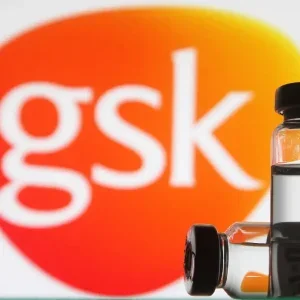AstraZeneca has received the US Food and Drug Administration (FDA) approval for Saphnelo (anifrolumab-fnia) to treat moderate to severe systemic lupus erythematosus (SLE) in adults, who are receiving standard therapy.
Saphnelo is a fully human monoclonal antibody that targets subunit 1 of the type one interferon (type 1 IFN) receptor, blocking the activity of type 1 IFNs.
Type 1 IFNs is said to play an important role in the pathophysiology of lupus and increased type 1 IFN signalling is linked to increased disease activity and severity.
The FDA approval marks the first regulatory approval for a type 1 IFN receptor antagonist and the only new treatment approved for SLE in more than 10 years, said the company.
AstraZeneca biopharmaceuticals R&D executive vice president Mene Pangalos said: “Today’s landmark approval of Saphnelo is the culmination of years of AstraZeneca’s pioneering research in the type I interferon pathway, a central driver in systemic lupus erythematosus pathophysiology.
“This ground-breaking medicine has the potential to meaningfully improve the lives of patients living with this often debilitating disease.”
The FDA approval was based on efficacy and safety data from the Saphnelo clinical development programme, including two Phase 3 TULIP trials and one Phase 2 MUSE trial.
In the trials, the treatment using Saphnelo showed reduction in overall disease activity across organ systems, along with reduction in oral corticosteroid (OCS) use, compared to placebo.
The reactions in the three clinical trials include nasopharyngitis, upper respiratory tract infection, bronchitis, infusion-related reactions, herpes zoster and cough.
SLE is a complex autoimmune condition, and a common form of lupus that causes long-term damage to any organ in the body, resulting in poor health-related quality of life.
Saphnelo clinical development programme principal investigator Richard Furie said: “Our treatment goals in systemic lupus erythematosus are to reduce disease activity, prevent organ damage from either the illness itself or the medications, especially steroids, and improve one’s quality of life.
“Today’s approval of anifrolumab represents a big step forward for the entire lupus community. Physicians will now be able to offer an effective new treatment that has produced significant improvements in overall disease activity, while reducing corticosteroid use.”
The UK drugmaker acquired the global rights to Saphnelo through an exclusive license and collaboration agreement with Medarex, in 2004.
Medarex was later acquired by Bristol-Myers Squibb (BMS) in 2009, to which AstraZeneca is expected to pay a low to mid-teens royalty for sales based on geography.
Saphnelo is currently under regulatory review for SLE in the EU and Japan.






